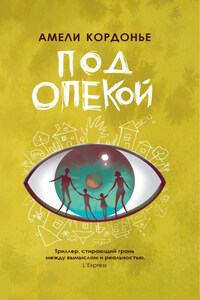HarperPress
An imprint of HarperCollinsPublishers 1 London Bridge Street London SE1 9GF
http://www.harpercollins.co.uk
This edition published by Harper Perennial 2006
Previously published in paperback by Flamingo 1984 and by Fontana 1975
This translation first published jointly by Seeker & Warburg
and Lindsay Drummond 1949
First published in France by Editions Gallimard under the title LâInvitée 1943
Copyright © Editions Gallimard 1943
PS section copyright © Louise Tucker 2006, except âThe Pain of Freedomâ by Fay Weldon © Fay Weldon 2006
PS>TM is a trademark of HarperCollinsPubishers Ltd
A catalogue record for this book
is available from the British Library
All rights reserved under International and Pan-American Copyright Conventions. By payment of the required fees, you have been granted the nonexclusive, nontransferable right to access and read the text of this e-book on-screen. No part of this text may be reproduced, transmitted, downloaded, decompiled, reverse engineered, or stored in or introduced into any information storage and retrieval system, in any form or by any means, whether electronic or mechanical, now known or hereinafter invented, without the express written permission of HarperCollins e-books.
Ebook Edition © MAY 2018 2012 ISBN 9780007384938
Version: 2018-05-16
HarperCollinsPublishers has made every reasonable effort to ensure that any picture content and written content in this ebook has been included or removed in accordance with the contractual and technological constraints in operation at the time of publication.
Françoise raised her eyes. Gerbertâs fingers were flicking about over the keyboard of his typewriter, and he was glaring at his copy of the manuscript; he looked exhausted. Françoise herself was sleepy; but there was something intimate about her own weariness, something cosy. The black rings under Gerbertâs eyes worried her, his face was haggard and tense; he almost looked his full twenty years.
âDonât you think we ought to stop?â she asked.
âNo, Iâm all right,â said Gerbert.
âAnyway, Iâve only one more scene to revise,â said Françoise.
She turned over a page. Two oâclock had struck a short time ago. Usually, at this hour, there was not a living soul left in the theatre: tonight there was life in it. The typewriter was clicking, the lamp threw a rosy glow over the papers ⦠âAnd I am here, my heart is beating. Tonight the theatre has a heart and it is beating.â
âI like working at night,â she said.
âYes,â said Gerbert, âitâs quiet.â
He yawned. The ashtray was filled with the stub-ends of Virginian cigarettes; two glasses and an empty bottle stood on a small table. Françoise looked at the walls of her little office: the rosy atmosphere was radiant with human warmth and light. Outside was the theatre, deprived of all human life and in darkness, with its deserted corridors circling a great hollow shell. Françoise put down her fountain pen.
âWouldnât you like another drink?â she asked.
âI wouldnât say no,â said Gerbert.
âIâll go and get another bottle from Pierreâs dressing-room.â
She went out of the office. It was not that she had any particular desire for whisky; it was the dark corridors which were the attraction. When she was not there, the smell of dust, the half-light, and their forlorn solitude did not exist for anyone; they did not exist at all. And now she was there. The red of the carpet gleamed through the darkness like a timid night-light. She exercised that power: her presence snatched things from their unconsciousness; she gave them their colour, their smell. She went down one floor and pushed open the door into the auditorium. It was as if she had been entrusted with a mission: she had to bring to life this forsaken theatre now in semi-darkness. The safety-curtain was down; the walls smelt of fresh paint; the red plush seats were aligned in their rows, motionless but expectant. A moment ago they had been aware of nothing, but now she was there and their arms were outstretched. They were watching the stage hidden behind the safety-curtain: they were calling for Pierre, for the footlights and for an enraptured audience. She would have had to remain there for ever in order to perpetuate this solitude and this expectancy. But she would have had to be elsewhere as well: in the props-room, in the dressing-rooms, in the foyer; she would have had to be everywhere at the same time. She went across the proscenium and stepped up on to the stage. She opened the door to the green-room. She went on down into the yard where old stage sets lay mouldering. She alone evoked the significance of these abandoned places, of these slumbering things. She was there and they belonged to her. The world belonged to her.










